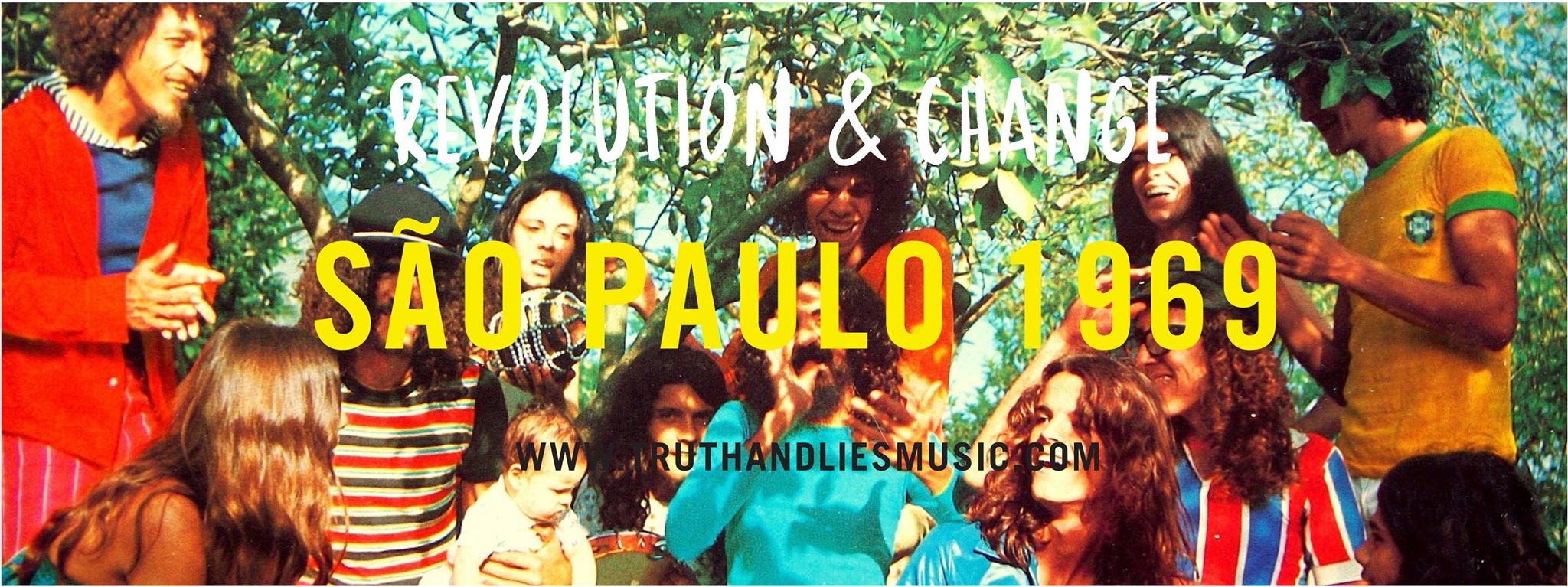It seems the BBC must have my number as I was asked to do a short segment on tropicália for their Sunday morning current affairs show Broadcasting House last Sunday (August 14th). You can listen to the show at bbc.co.uk/programmes/b07nn832 (my chat starts just after 56 minutes).
Tag Archives: Tropicalia
Truth and Lies Event at Rough Trade Nottingham

I’m looking forward to hosting a talk at Rough Trade Nottingham as part of Truth and Lies‘ latest event, a celebration of Brazilian music, especially those revolutionary years at the end of the 60s. The event is called Revolution & Change: São Paulo 1969 and should be fun. I’ll be talking about the history of tropicália, pulling some interesting stories and facts out of the vaults, as well as looking at its enduring impact.
The event will be happening on Friday 27th May. There will be short films, followed by my talk, then lots of killer Brazilian tunes and dancing. If you’re in Nottingham you should pop by…
You can find out more about the event at roughtrade.com/events/2016/5/2237 and facebook.com/events/1352752204740652
Tropicalia Articles for Red Hot + Rio 2
On June 28th the Red Hot Organization, a charity devoted to the prevention of HIV/AIDS, will release Red Hot + Rio 2, a compilation of Brazilian songs from the 60s and 70s, particularly those from the tropicália period, that will be covered by artists including Beck, Caetano Veloso, Dirty Projectors, Seu Jorge, Beirut and Aloe Blacc. Continue reading Tropicalia Articles for Red Hot + Rio 2
Tropicália – Pushing the Boundary of Song
This is the first of a number of guest posts I will be doing for the Red Hot Organization, in the lead-up to their release of Red Hot + Rio 2 in late June. This first post talks about the reasons I love tropicália and looks at the legacy of the movement. Continue reading Tropicália – Pushing the Boundary of Song
The impact of tropicalia rumbles on!
Without question one of my favourite styles of music is tropicália. Without it I wouldn’t be able to freak out to the sounds of Os Mutantes, bask in the glory of Caetano Veloso’s words, groove to Gilberto Gil and generally sit in astonishment at the sheer unbridled joy of Rogerio Duprat’s arrangements. With a covers compilation approaching this summer and a documentary in the works it seems as if a few people may well get to discover a little more about this music also. Continue reading The impact of tropicalia rumbles on!
A History of Tropicália
This piece has just been published at Latineos, a history of Tropicália, one of the most joyful styles of music ever to emerge from this planet. Here’s the intro:
It would be near impossible to recreate the circumstances that resulted in tropicália. In 1967, Brazil’s repressive military government had been in charge for three years and Brazilian music was in status quo. The authorities were happy that samba was the favourite music of the nation – they saw it as the perfect marketing tool – and didn’t see the need for change. This was a climate in which João Gilberto’s beautiful hybridisation of samba into bossa nova drew stinging criticisms from those who thought it was un-Brazilian. Continue reading A History of Tropicália